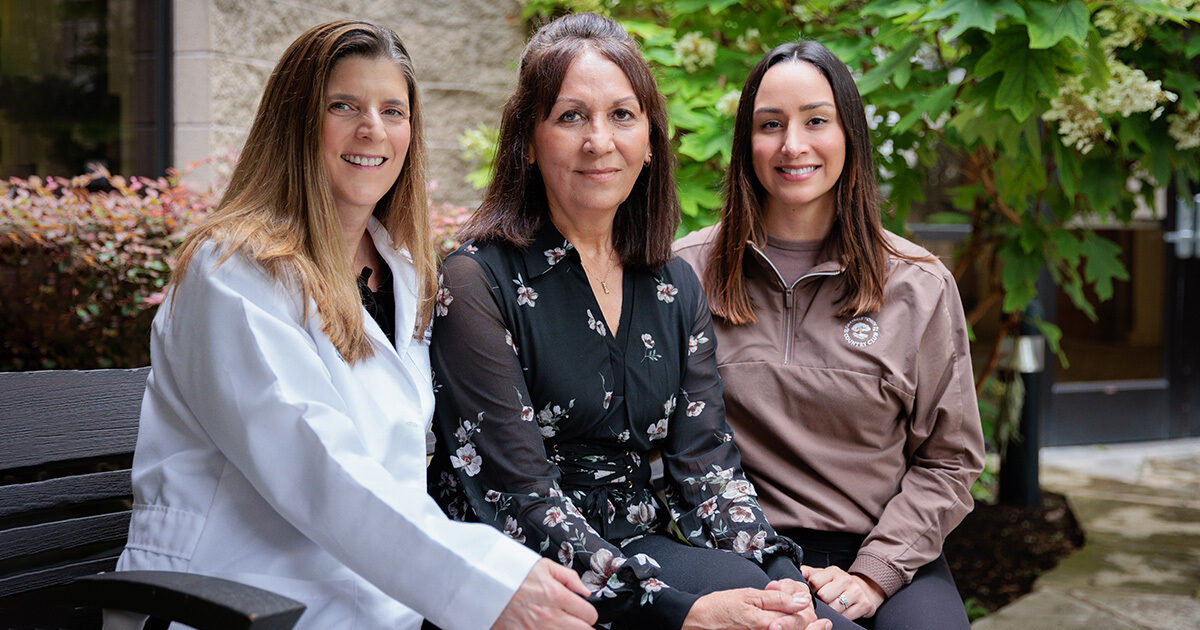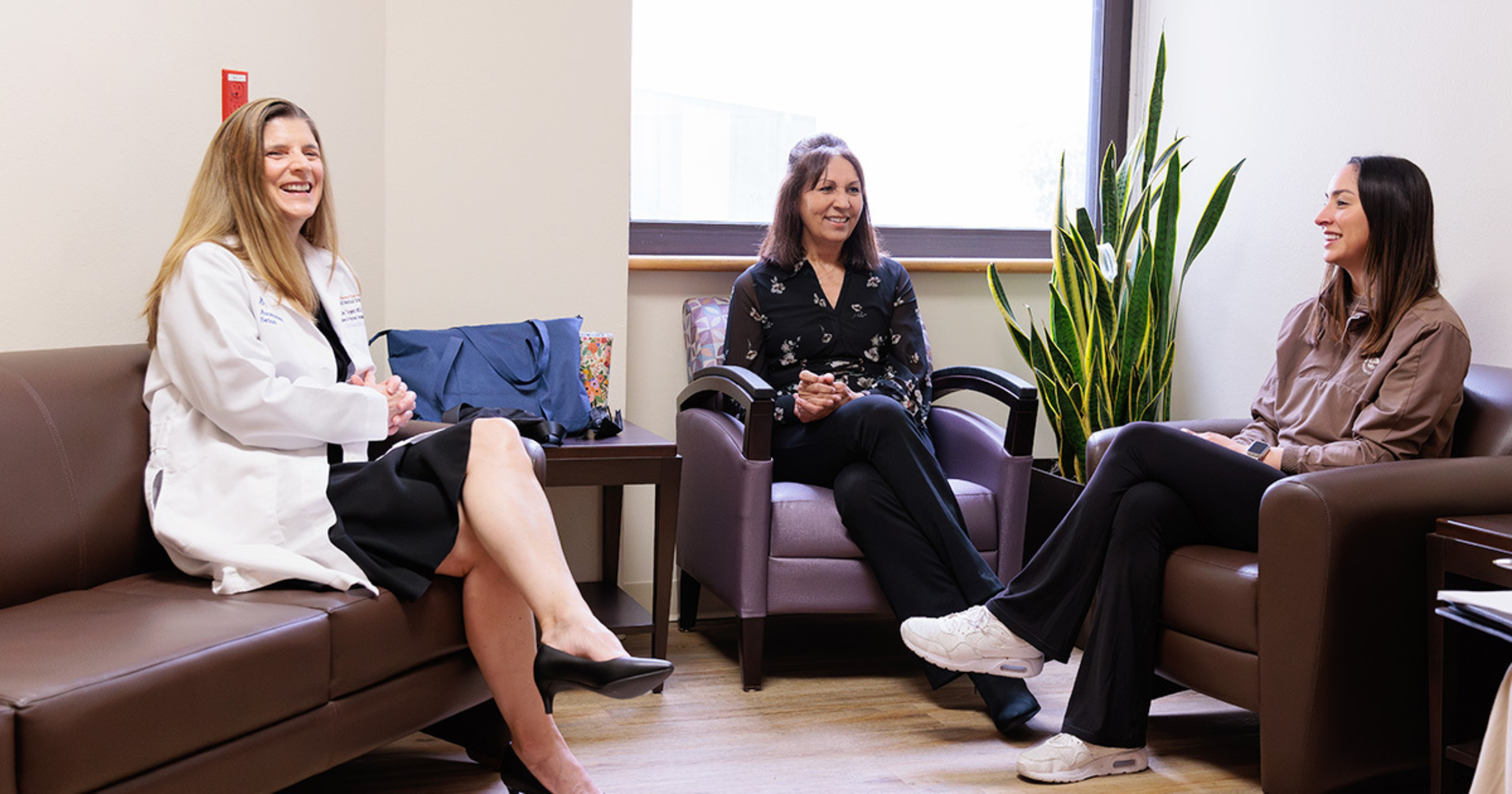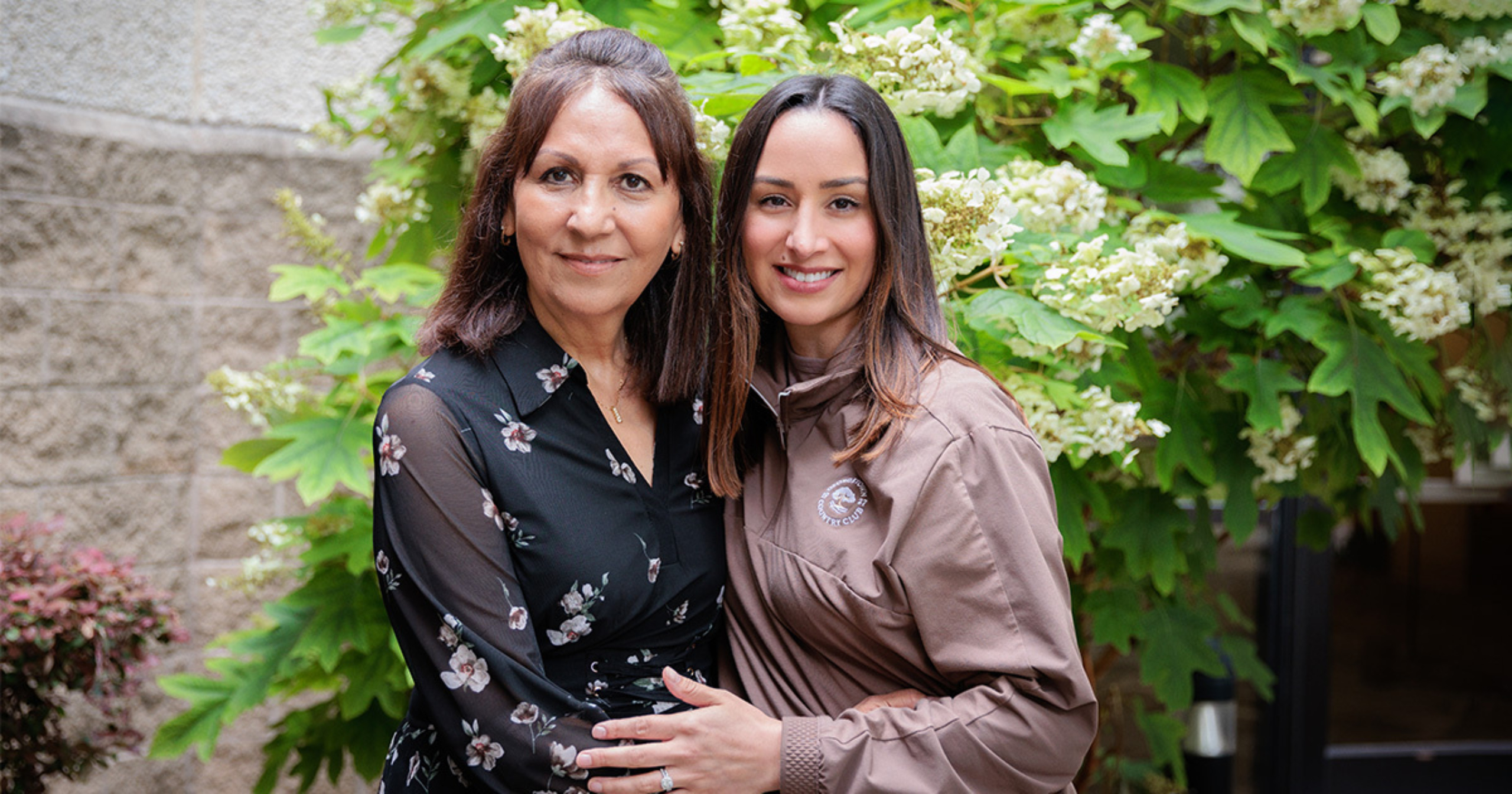The Gift That Keeps on Giving
Daughter donates her kidney to a stranger to save her mother’s life
Reviewed by: Julie, Kelli, and Nicole Turgeon, MD, FACS
Written by: Ashley Lawrence

On December 31, 2021, at the age of 63, Julie was placed on dialysis for kidney failure. “It slowly progressed over a period of 10 years,” explains Julie. “Doctors don’t know why it happened. All of a sudden, I went from walking three miles a day to feeling so horribly sick that I could hardly do anything at all. When I went to see my doctor, he said, ‘We’re going to have to put you on dialysis.’”
“To hear that our mother was sick didn’t make any sense to us,” recalls Kelli, Julie’s daughter. “She has always lived an active lifestyle and was constantly on the go. She also seemed too young, as both of her parents, my grandparents, are still alive at the ages of 98 and 85.”
“This is a very common situation, and oftentimes, people end up in the emergency room because they were unaware that they had kidney failure,” shares UT Health Austin abdominal transplant surgeon Nicole Turgeon, MD, FACS, who serves as the Transplant Director for the Abdominal Transplant Center, a clinical partnership between Ascension Seton and UT Health Austin. “Sometimes, it’s the result of people not seeking out the medical care they need. Other times, it doesn’t matter how well you take care of yourself, the progression of the disease is inevitable, and a transplant becomes necessary.”
“My doctor immediately referred me to the Abdominal Transplant Center, which had just opened in Austin the month before,” says Julie. The Abdominal Transplant Center was established in November 2021. The Kidney Transplant Program within the Abdominal Transplant Center provides comprehensive care for adult patients with chronic kidney disease or end-stage renal disease. The Abdominal Transplant Center care team consists of board-certified and fellowship-trained transplant surgeons, transplant nephrologists, transplant coordinators, physician assistants, nurses, advanced practice providers, health social workers, dietitians, pharmacists, and more who work together to provide patients the highest level of care.

“The care team was phenomenal,” adds Julie. “I truly have nothing but great things to say. Sometimes, I would arrive early for my appointments, and other patients would sit down and talk about how in awe they were about the way everyone involved in our care would come together as a team. From the office staff to the doctors and nurses, everyone was in perfect sync. It was incredible.”
“At the Abdominal Transplant Center, patients are cared for by a dedicated multidisciplinary care team, meaning they will benefit from the expertise of multiple specialists across a variety of disciplines,” explains Dr. Turgeon. “This care model plays a pivotal role in guiding patients through their care journey. From the initial evaluation of a patient’s situation and needs, all the way through their surgery, and throughout their follow-up care, the cohesion of care team members is pivotal for the patient’s ongoing success. This is what we strive for because how patient perceive their transplant journey is paramount to us.”
Learn more about Dr. Turgeon’s commitment to empowerment.
<br>“Upon learning of my mother’s diagnosis, I immediately decided I was going to donate my kidney to her,” shares Kelli. “Having lost my dad eight years ago to cancer and with my older brother being a cancer survivor, our family has faced many hardships. My mother and I have grown so close that I didn’t even consider the possibility that I might not be a match for her. While this came as a shock, I was still prepared to move forward with donating to someone else on her behalf.”

Through the Living Kidney Donor Program, a specialty program within the Abdominal Transplant Center, patients have the option to participate in a paired kidney exchange program that helps incompatible pairs of recipients and donors find matches for a kidney transplant. In paired donation, a living donor kidney will go to a recipient and, in turn, their kidney donor, who wasn’t a direct match to them, will donate to another recipient, initiating a chain in which several recipients may receive a living kidney donation when previously no transplant would have been possible. The average wait time for a transplant through the paired donor kidney exchange program is approximately four months.
“My husband and I chose to consider donation after we had a child,” explains Kelli. “I participated in the National Kidney Registry’s Standard Voucher Program, which allowed me to choose the donation timeframe that worked best for myself and my family. Being able to donate at a time separate from my mother’s surgery worked out even better for us, as she was able to help care for our 18-month-old while I recovered.”
Through the National Kidney Registry’s Standard Voucher Program, an eligible living kidney donor is able to choose the most convenient timeframe for their kidney donation surgery and provide one or more vouchers to people who can then be prioritized to receive a living donor kidney through the NKR if/when they need a transplant. Voucher donation is often referred to as a paired kidney exchange separated in time.
If you are interested in being considered for living kidney donation, please complete the online medical screening questionnaire.
<br> “The Abdominal Transplant Center care team was so wonderful,” shares Kelli. “They made sure I was fully educated about living donation and constantly reminded me that I didn’t need to make a decision right away. I never felt pressured or forced, and they even worked with me to make sure the timing was right for me and my family.”
Learn more about the benefits of living donation.
<br>On September 12, 2023, Kelli underwent kidney donation surgery. “While I wish that my mother didn’t have to wait so long for her surgery,” says Kelli, “I was still recovering from a very difficult pregnancy and wanted to make sure I was the healthiest version of myself for both her and my family before I donated.”
Six months later, Julie was notified of a compatible match. After being on dialysis for two years and three months, she underwent kidney transplant surgery on March 20, 2024. Post-surgery, Julie’s quality of life has significantly improved. She no longer spends nine hours a week on dialysis and is already back to walking multiple miles a day. “I’ve been entrusted with a precious gift that I will always cherish and take care of to the best of my ability,” shares Julie.
Since the Abdominal Transplant Center opened two years ago, the care team has completed 48 transplants and 27 donations. The Abdominal Transplant Center also offers services for patients in need of a pancreas transplant and those who may need a simultaneous kidney and pancreas transplant. Dr. Turgeon plans to expand her practice by developing programs for patients in need of liver transplants as well.
For more information about the Abdominal Transplant Center or to request an appointment, please call 1-512-324-7930 or visit here.